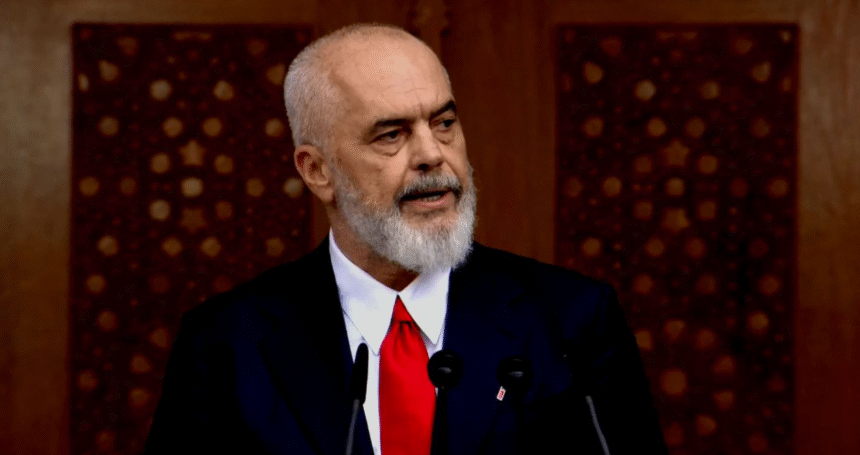Prime Minister Edi Rama delivered a long, personal eulogy at the state farewell ceremony for Fatos Nano, former prime minister and founding chairman of Albania’s Socialist Party, who died at age 73. Below is a polished, readable English rendering of Rama’s remarks.
“They tell you a phrase: ‘Die without me loving you.’
How I wish, dear Fatos, that tonight we could sit at one of our rare dinners of recent years — breathe the clean air between us — and go late into the night through our little review of events and people, everything said and written about you since the news broke that this time you were gone forever.”
Rama said he had imagined many things after learning of Nano’s irreversible coma, but never pictured the day he would stand to give a public farewell to the founding leader of Albania’s largest political family.
Nano’s Complex Legacy
Rama traced Nano’s life across extremes — admired and reviled, persecuted and celebrated — arguing that those contradictions are part of what made Nano a defining political figure. He rejected attempts to reduce Nano’s legacy to single episodes or slogans.
“Those who now praise him were often the same who once called him a traitor for meeting Slobodan Milosevic at an international event in Thessaloniki,” Rama said, defending that meeting and insisting that, when fully examined, Nano’s conversations and contacts with patriots of the national movements in Kosovo and North Macedonia will confirm his patriotic contribution.
Rama recalled Nano’s political rise after the fall of communism, describing him as a non‑dogmatic and inventive figure whose leadership helped breathe fresh life into the Socialist Party during a turbulent era. He credited Nano’s forced sacrifices — including imprisonment — with transforming both the man and the party, giving the Socialist Party renewed purpose and resilience.
On Persecution and Reinvention
Rama contrasted two images of Nano: the persecuted professor tried and jailed, and the resilient leader who emerged with renewed force, ready to steer the party toward democratic engagement and European orientation. He emphasized that Nano’s political trajectory and personal contradictions should be studied honestly rather than dismissed.
“Without the sacrifice forced upon him, the Socialist movement would have had a less generous fate; and perhaps Fatos himself would not have become the long‑lived leader he did. His life is material for history, not hypocrisy,” Rama said.
Personal Memories and Farewell
Rama spoke warmly about private moments — rare dinners, strategic conversations, and the mutual respect that shaped their political partnership. He framed Nano as a mentor whose mix of pragmatism and stubbornness helped shape modern Albanian socialism.
Closing his address, Rama turned the eulogy into a personal farewell:
“Dear Fatos — I will miss our rare friendly dinners, our quiet strategic talks. Thinking of what you handed me in that first turn, and what I returned in the second, it feels natural not to say farewell, but rather: may Fatos Nano never die.”







